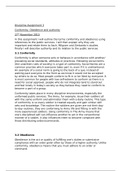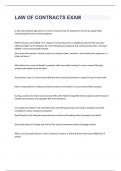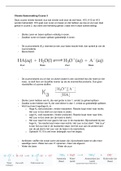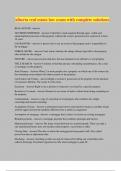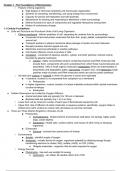Essay
Discipline Assignment 3: Conformity, Obedience and Authority
- Module
- Institution
Conformity, Obedience, Research on Conformity and Obedience, Authority, Nature of Authority, Types of Authority, Legislation: The Armed Forces Discipline Act 2000. Police Act 1997 Section 50, Police and criminal evidence Act part IX Fire and rescue services Act 2005.
[Show more]
